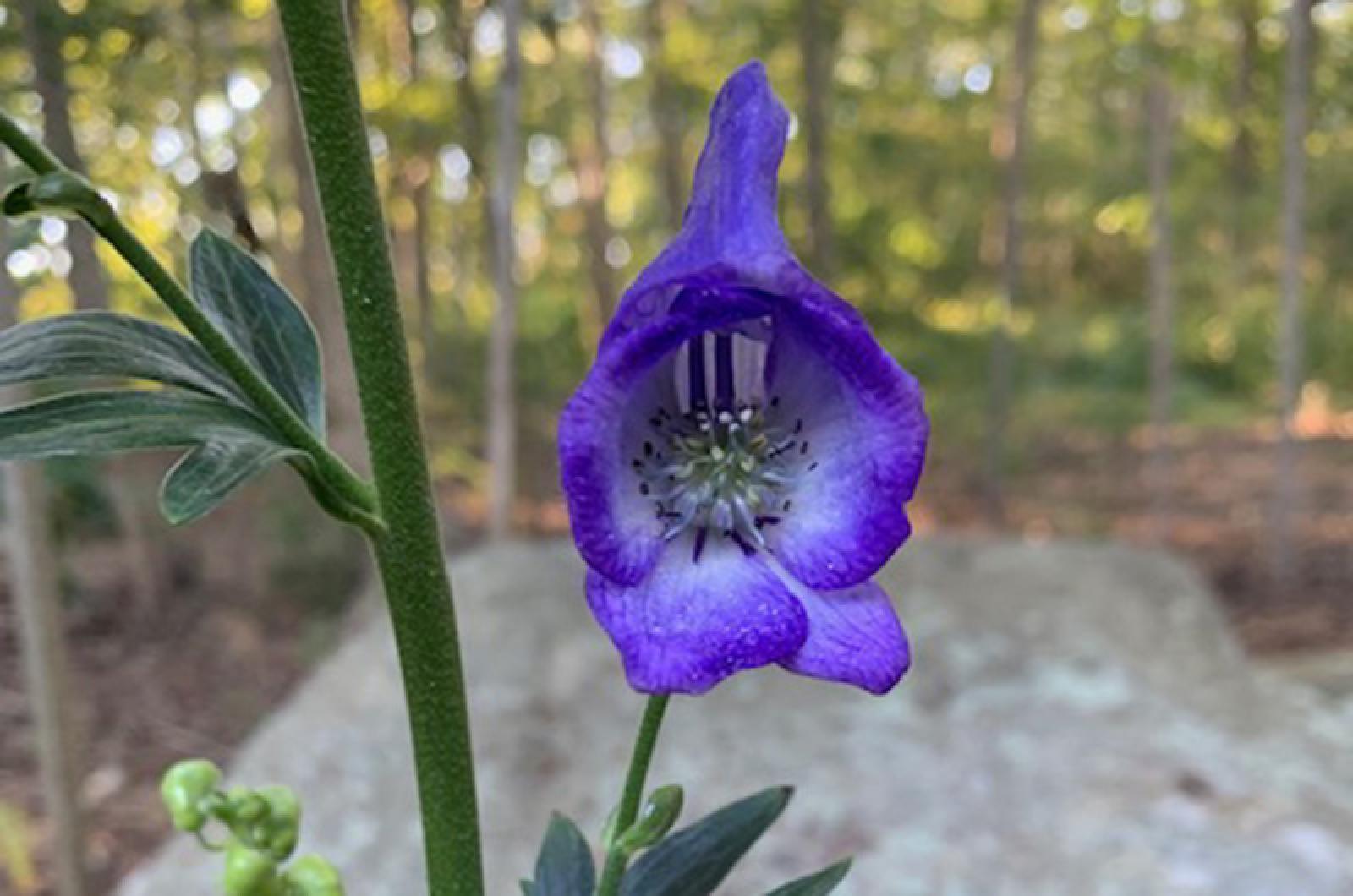It seems to be the bane of everyone’s existence.
This plant has been called wolfsbane, womansbane, leopardsbane, or mousebane, and can be a nuisance so dire that death can result from its use and misuse. It is also known as monkshood, aconite, devil’s helmet, queen of poison, and blue rocket. It is a beloved garden plant with a history of murder and mayhem.
Ancient mythology suggested that Hecate, goddess of magic and spells, invented wolfsbane for her witchcraft. An alternate story insists that the poison came from the slobbering of three-headed Cerberus, the dog protector of the underworld.
Wherever wolfsbane came from, it was much used. Athena reportedly employed it to transform Arachne into a spider, and it was Medea’s poison of choice to knock off Theseus.
Shakespeare called wolfsbane a “venom of suggestion” to break up relationships. More recently, in Game of Thrones, it was complicit in an assassination. Romans favored the herb as a method of execution and Greeks forced senile seniors to use it for involuntary euthanasia. Both Socrates and Alexander the Great might have been victims of this plant’s poison; forget what you heard about hemlock. A very dark history indeed.
The association of wolfsbane with the underworld goes deeper. It is believed to protect against Dracula and werewolves when worn around the neck or kept in the home. Usage can also lead to lycanthropy. the belief that one can turn into an animal and, more specifically, a wolf or werewolf. This shape-shifting theory is one accounting for the name wolfsbane, as is the thought that it can kill both of those creatures.
Biologically, wolfsbane works as a neuro- and cardiotoxin. Its effects resemble those of rabies and it doesn’t take much, or long, to prove fatal. For this reason, wolfsbane has been used not only on people but also for hunting, by treating arrow tips with the plant material such as its sap or powdered root.
In modern times, this plant has even been falsely recommended as a treatment for Covid. Last April, the president and health minister for Kyrgyzstan claimed that a concoction made with aconite root should be “consumed when it is hot only and in two to three days anyone who tested positive on coronavirus will immediately feel better.”
The World Health Organization quickly responded with a denial of any benefits of wolfsbane against Covid and refuted that advice. Sadly, at least four people in the country were hospitalized after taking the government’s recommendation.
Even with its malevolent past, wolfsbane has become a favorite in gardens for the bold blue beauty of its hooded flowers (ergo the name “monkshood”). Harry Potter and his crew also found it to be an ingredient in positive potions, learning of its benefits when they studied the plant for the Wideye or Awakening potion. This wizard concoction prevented sleep (think studying for final exams), and could awaken someone from a concussion or drug-induced sleep.
After all, whether in literature or in life, good should always triumph over evil.
Suzan Bellincampi is islands director for Felix Neck Wildlife Sanctuary in Edgartown and the Nantucket Wildlife Sanctuaries. She is also the author of Martha’s Vineyard: A Field Guide to Island Nature and The Nature of Martha’s Vineyard.




Comments
Comment policy »